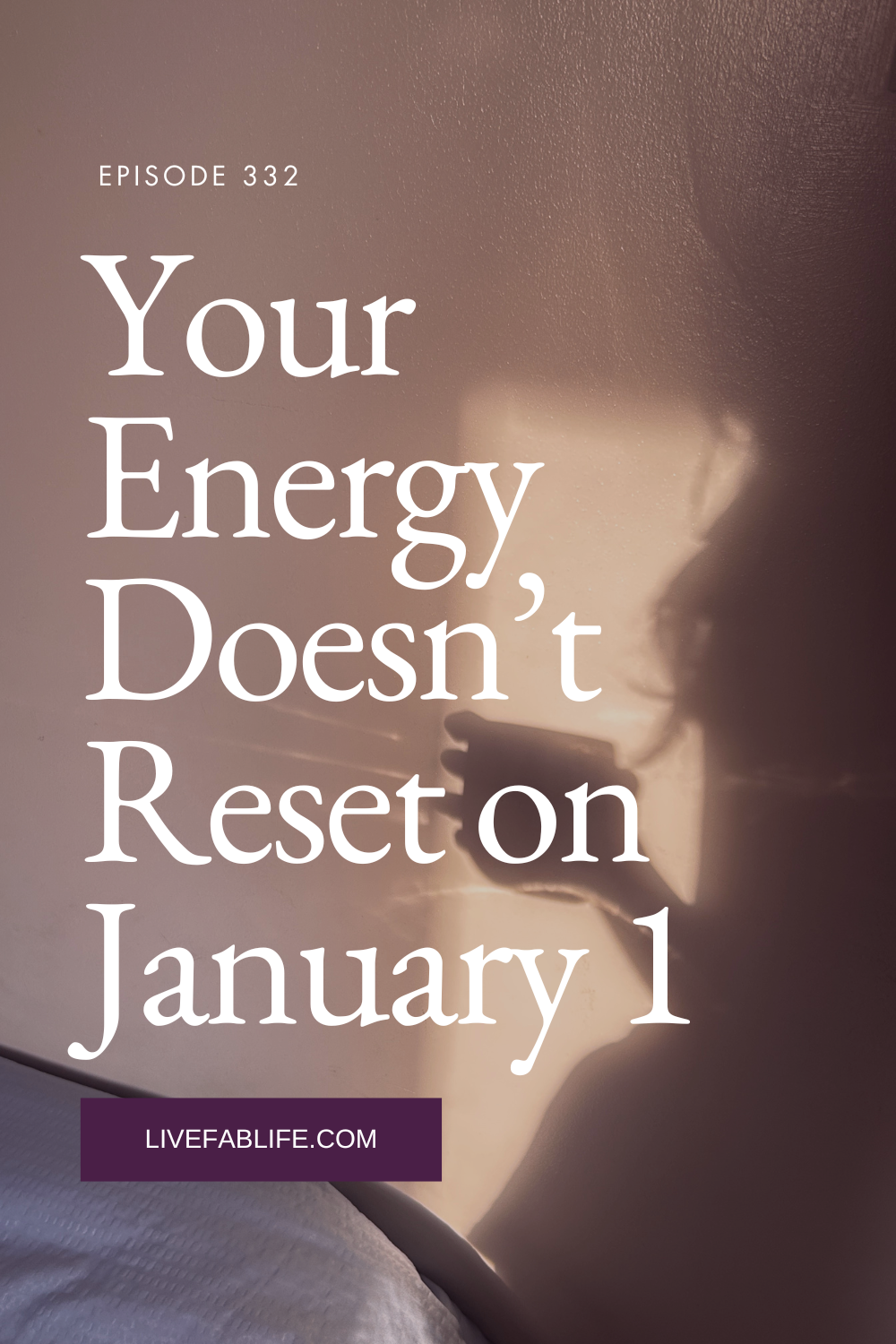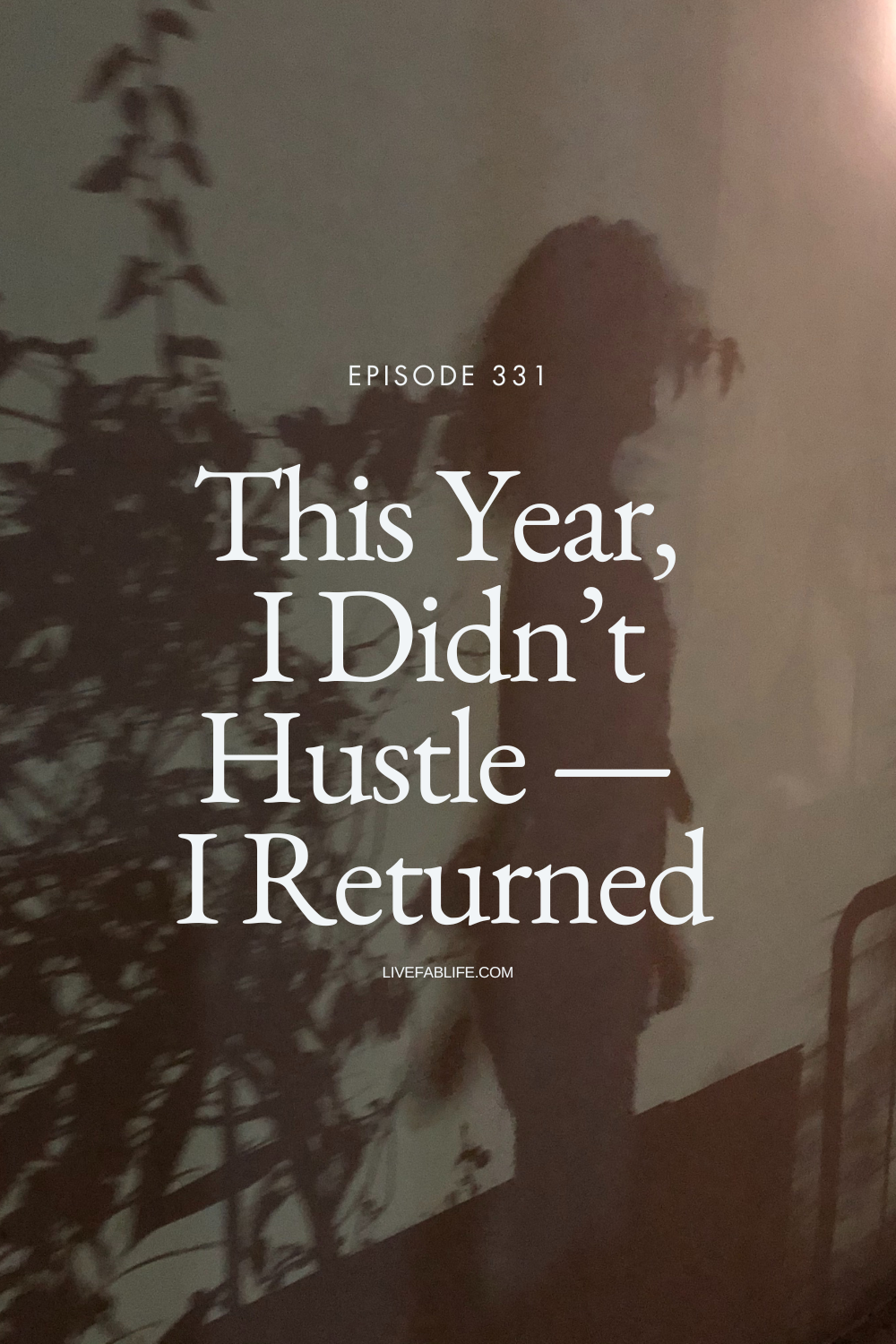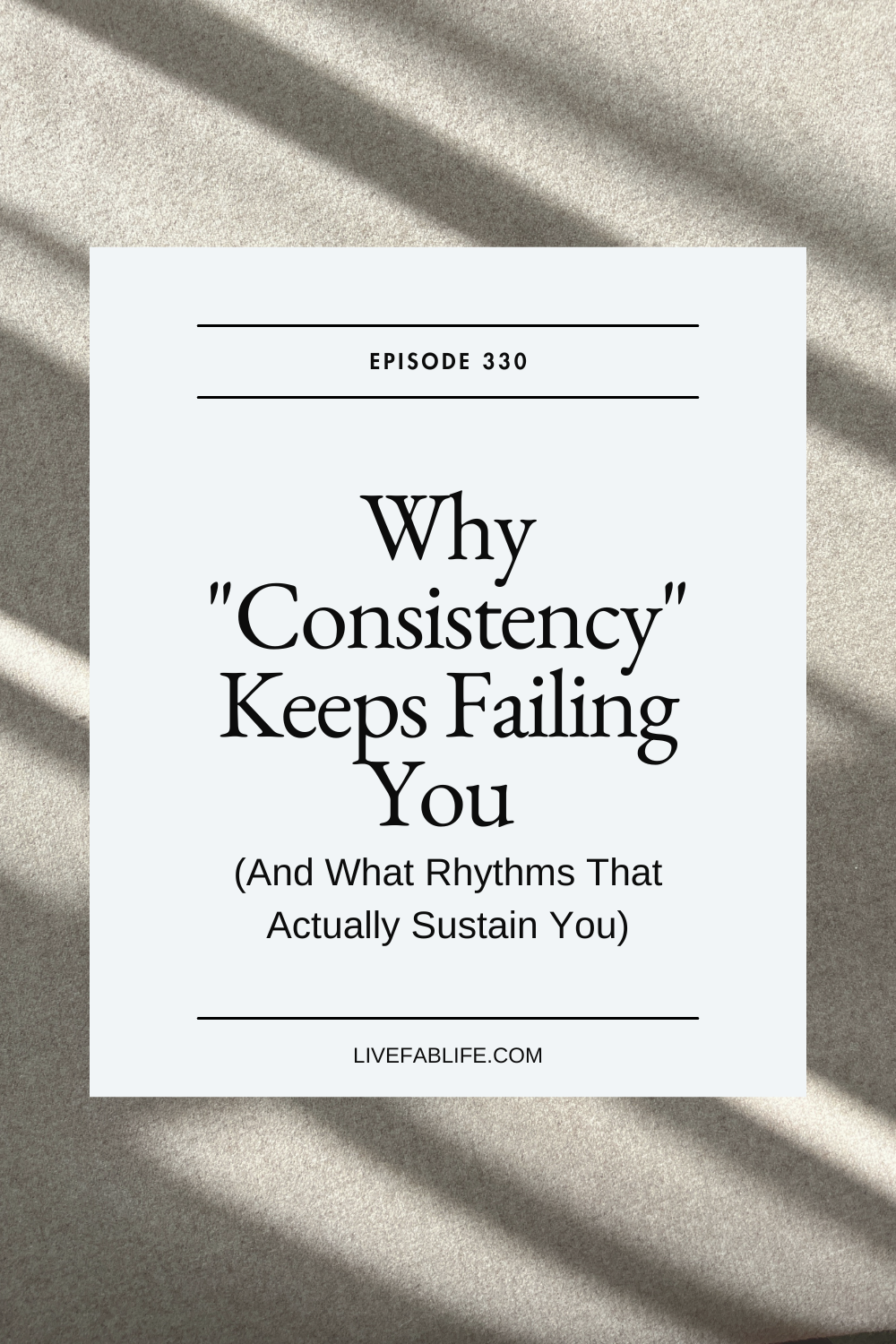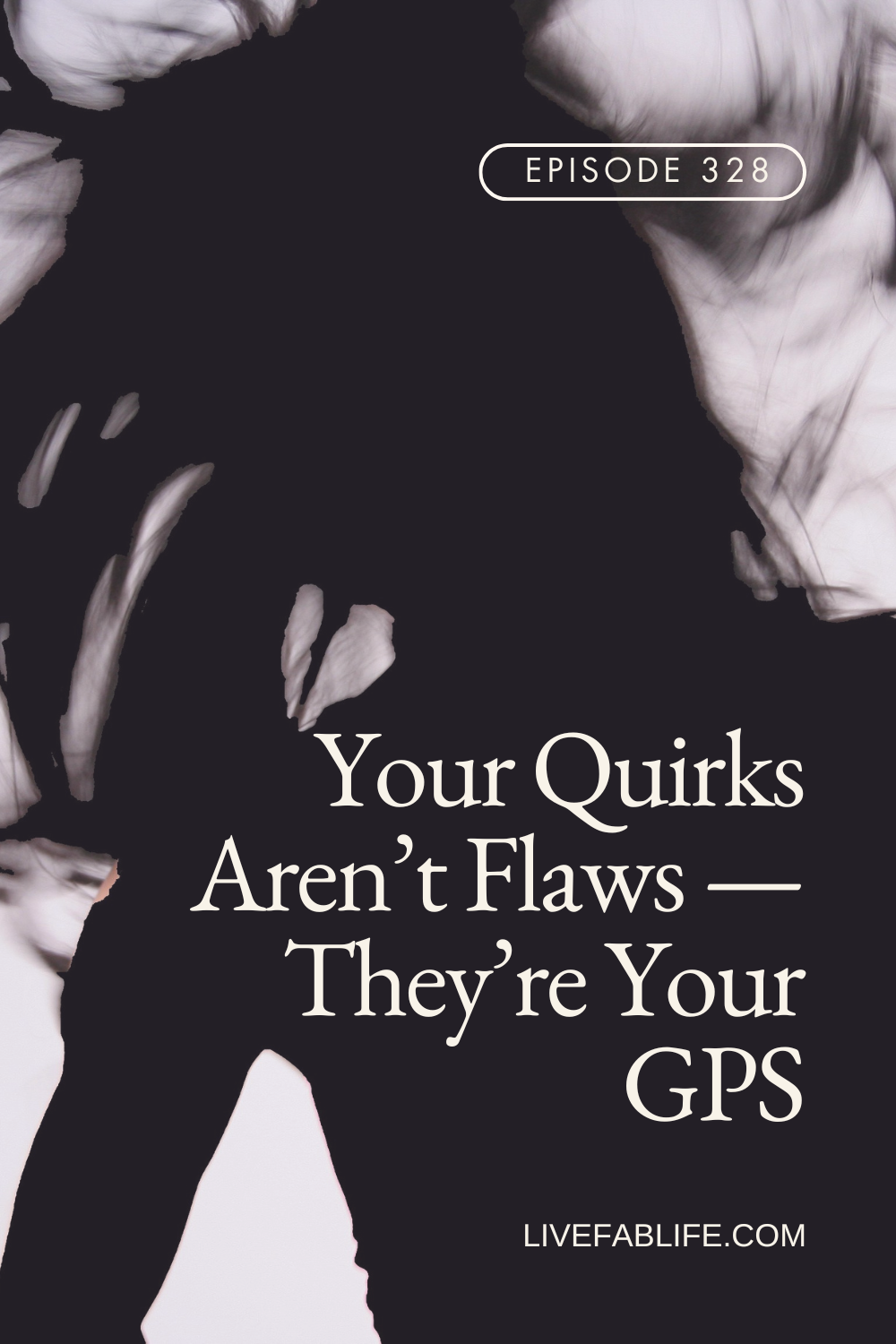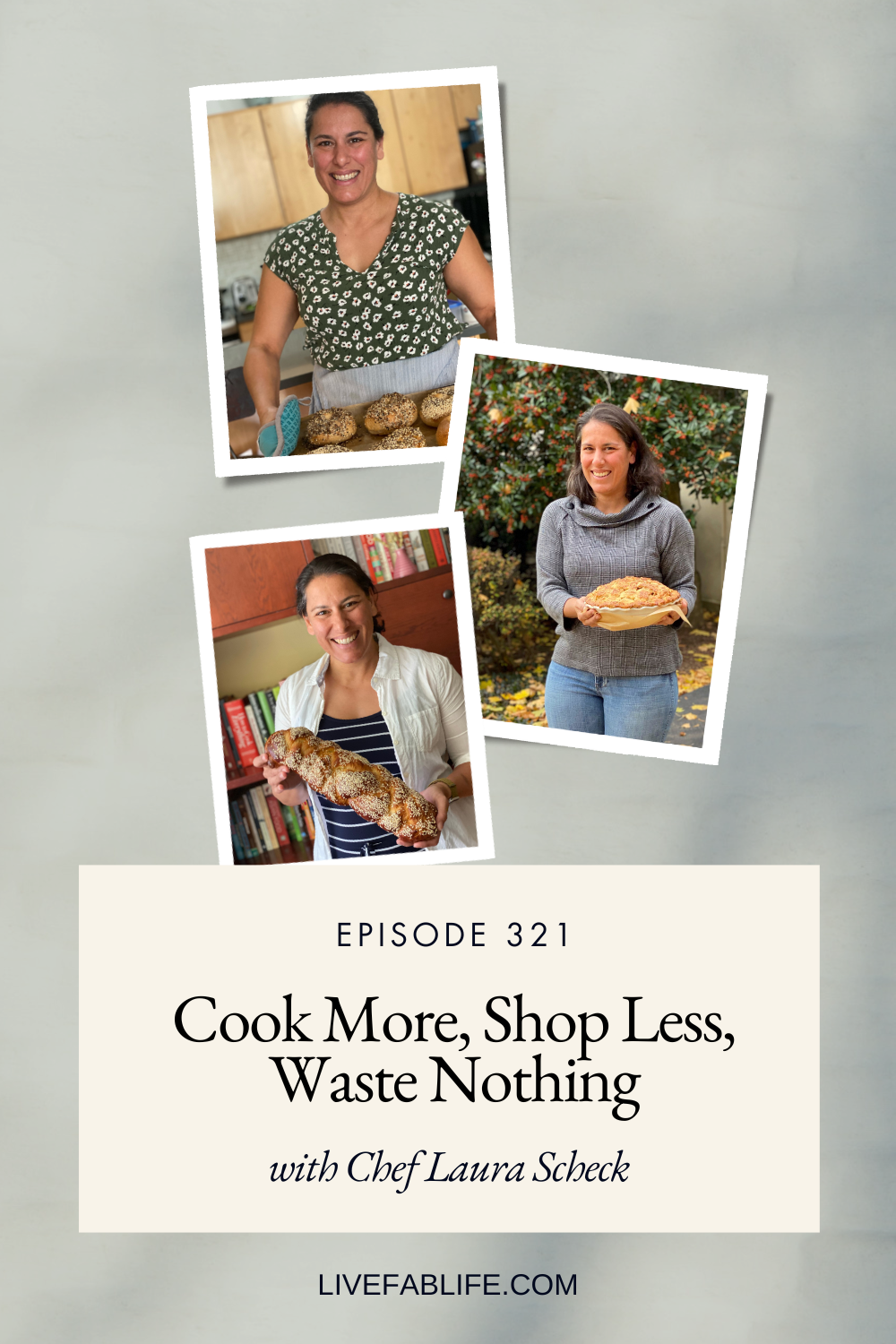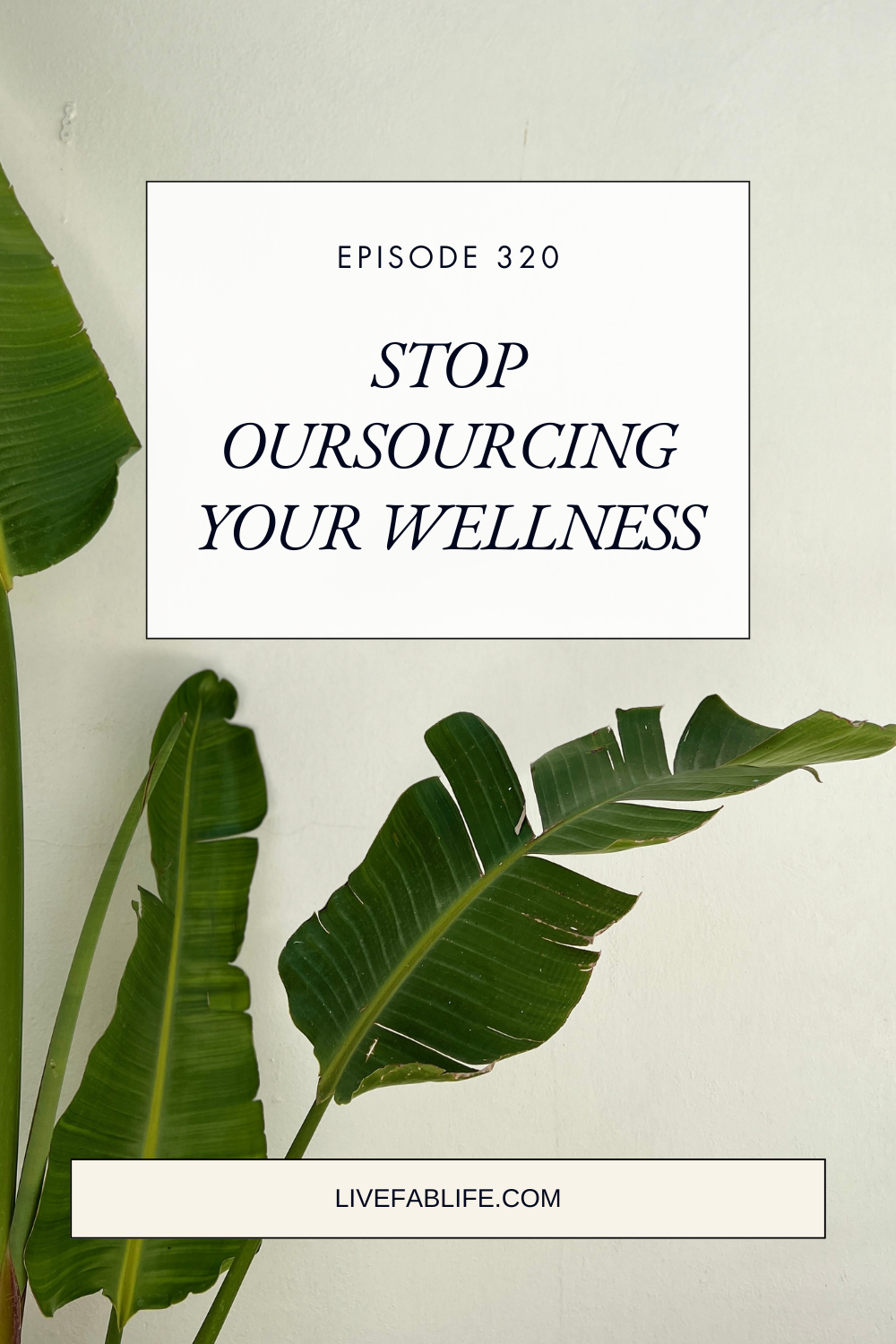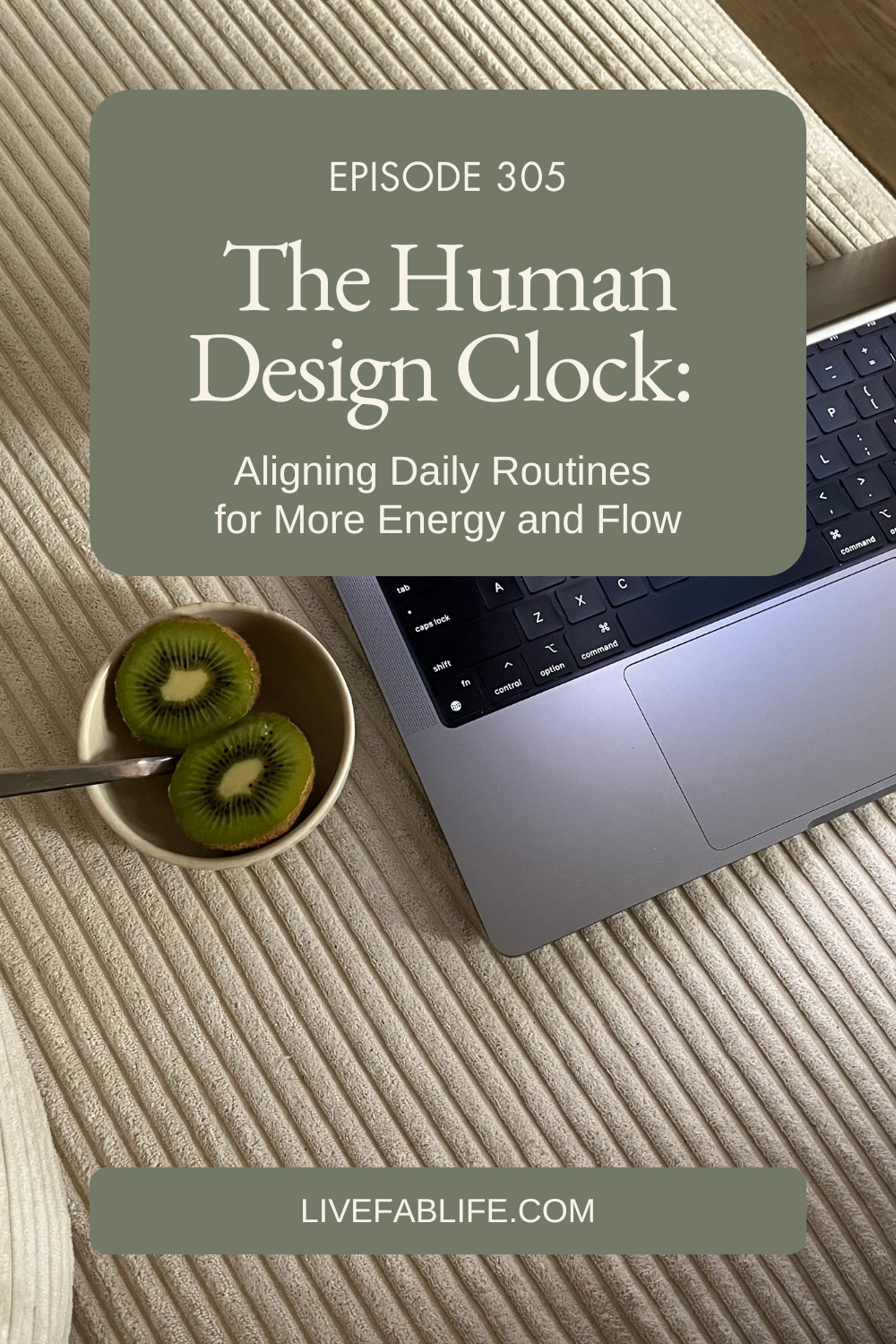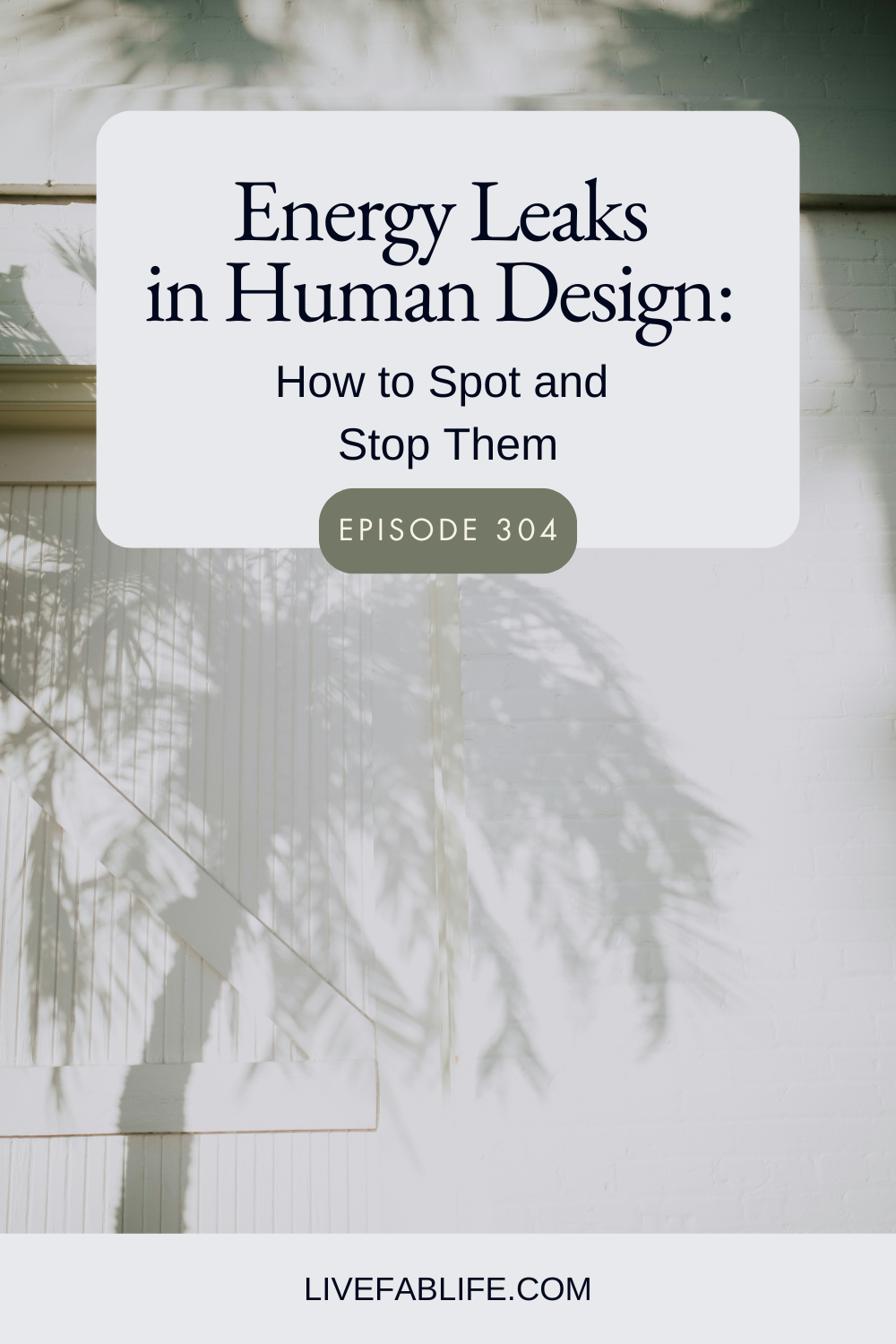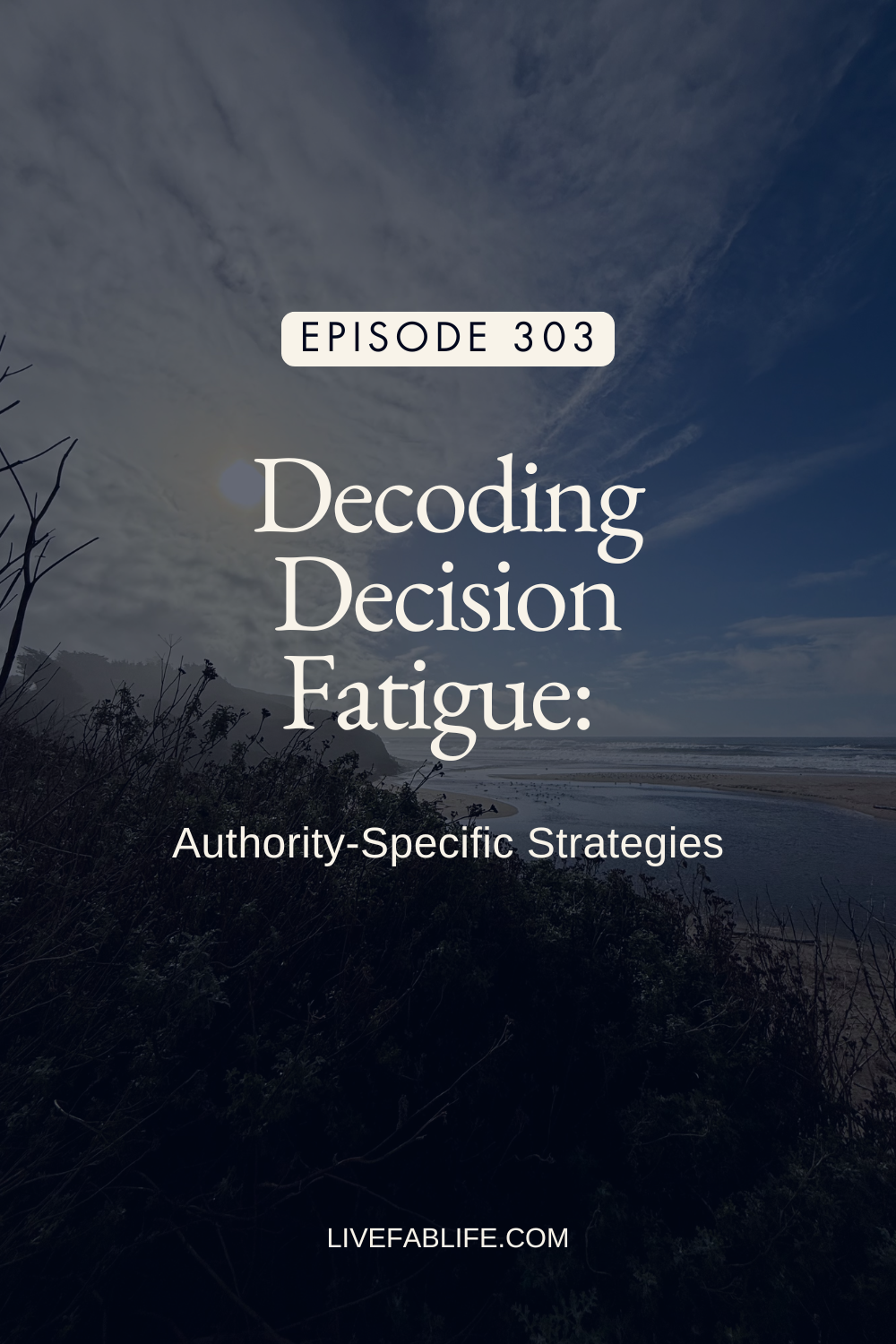Episode 172: The Stories We Don’t Talk About: An Asian American Experience, Acupuncture and Traditional Chinese Medicine with Emily Chui
Continuing with Asian Pacific Heritage Month, joining me in this episode is Emily Chui. Emily is a returning guest, having previously joined me in Episode 024 with an introduction to acupuncture.
Emily has been my acupuncturist for the past five years (and counting!) and has taught me so much about Traditional Chinese Medicine.
In this episode, Emily shares:
Her immigration story migrating from Hong Kong to Southern California as a high school student
What her transition to American schools was like
Why she pursued a career in acupuncture (after getting her undergraduate degree in a different field)
Similarities and differences between Western medicine and TCM
What are ear seeds and how they can be beneficial for healing
Listen to the Episode:
Mentioned in the Episode:
Connect with Emily Chui:
Share the Episode:
“In Chinese medicine, we’re trained to understand the relationship between what’s visible and invisible. So there’s something happening in the background that we cannot see like hormones are being secreted, but we can’t really see it. So I in Chinese medicine, if we can get the right relationship with what’s going on in the background and what we can see, that’s like being in the right relationship with nature too. Because whatever energy that’s happening outside, it’s also happens inside of our bodies. So it’s really just a study of nature and placing that into our body.”
Read the Transcript...
Naomi Nakamura: Hello, my friends. And welcome back to The Live FAB Life Podcast. I'm your host, Naomi Nakamura and I am so happy to be back here with you for another episode.
Continuing on with this month's theme of telling real people's stories for Asian Pacific Heritage Month, in this episode, I am joined by returning guest and my acupuncturist, Emily Chui. Emily first joined me way, way back in Episode 024 and I actually had to look up the date on that, and that was well over three years ago. It's kind of a nice reminder of how long this show has been going on.
But in Episode 024, Emily gave us an introduction to acupuncture and it actually is one of the most popular episodes that's still being downloaded today. But in this episode, Emily is joining me to share her immigrant story of how she came to California from Hong Kong as a high school student.
Now, if you're familiar with history, Hong Kong, I think until the '90s, I could be wrong, but I'm pretty sure until the '90s, they were a part of the British Commonwealth. And so there is a lot of Western influence there.
So as Emily shares, she was actually required to learn English in school. But as you will hear, she still had some language challenges, despite speaking fluent British English, when she started school here in California.
So she shares what that transition was like. And then she even shares how she ended up as a herbalist and acupuncturist despite earning her undergraduate degree at a California University in a totally different field. I mean, isn't that [inaudible 00:01:57] for most of us, me.
Emily also goes on to share more of her professional expertise as an acupuncturist. And she explains some similarities and differences between Western medicine and traditional Chinese medicine, especially in how they approach health.
Emily has been one of my healers for five years now. And while traditional Chinese medicine is a very ancient practice, what I really appreciate is that she's always learning new things and she consistently brings those modern learnings into her practice.
And one particular topic that she shared about recently, particularly on Instagram is a topic that I have a personal interest in and it's on Ear Seeds. And you'll hear me explain why I've been intrigued by it, but we talk about Ear Seeds and a bunch of other topics really in depth in our chat, as she also explains and shares her story.
So with that, let's get to the show.
Hi, Emily. Welcome back to the show.
Emily Chui: Thank you, Naomi. Thanks having me back.
Naomi Nakamura: Of course, you were one of the first guests I had. I think it was probably like almost four years ago. So it's-
Emily Chui: Is it that long?
Naomi Nakamura: Yeah. I, this summer will be four years I've had the show going and you're probably within the first 20 or 25 episodes. And so this episode will be 172. So, it's been a while. And I know that your first episode that you're on was really, really popular, had a lot of downloads about acupuncture and so I was thinking about it. I think we're going on five years of you being my acupuncturist and treating me because I remember us talking about the 2016 Olympics and [crosstalk 00:03:40]
Emily Chui: Oh really? Okay. I didn't remember that.
Naomi Nakamura: That kind of how... I was like, "How long they've been seeing Emily?" I'm like, "Oh, I remember us talking about the Olympics that summer. And so that's..." I'm like, "Oh, it's not. Oh, I'm not sure."
Emily Chui: That's right. I remember we talked about the cupping on Michael Phelps back, right?
Naomi Nakamura: That's exactly what it [inaudible 00:03:54].
Emily Chui: Yeah. Yeah. That's amazing. I didn't realize it's been that long.
Naomi Nakamura: It has. So I am excited to have you back and thank you so much for agreeing to join me. There's a number of things that I want to talk about because every visit, I'm always picking your brain about so many things. And I really appreciate you still being able to support me as well as I know your other patients, especially the past year during the pandemic, we've actually done virtual visits for 14 months now?
Emily Chui: Mm-hmm (affirmative).
Naomi Nakamura: And you've started seeing patients in person and have that comfort level yet until after I'm fully vaccinated. Wish I'm getting my second shot tomorrow. So I'm excited about that.
Emily Chui: Oh, no. I was like-
Naomi Nakamura: I guess. Yeah. Yeah. I really think you're really creative in the way you went about handling the whole pandemic situation.
Emily Chui: Thank you. I try to be.
Naomi Nakamura: No. Yeah, it was almost seamless. It really was seamless. And for those listening, if you're curious, Emily, she would have delivered to me your microneedles and we can get into that later if you like, and then we would do tele visits. And so I said, the whole process is really seamless for me. And it really helped with all the stress that we all went through over the past year. So-
Emily Chui: That's right. I'm glad to hear it and-
Naomi Nakamura: I have been bugging you to come and join me on this show for a couple months now, because you always explore different types of treatments. And one that you have explored more recently is Ear Seeds, and we'll get into that in a little bit. But it's just... By coincidence, this episode is going to air during the [inaudible 00:05:25]. I don't even know what the official name is. I've seen so many variations of it, but the Asian Pacific Islander heritage. [crosstalk 00:05:31] Right. And so you come from Hong Kong. And so I just really wanted to hear your story. Like I said, I've known you for five years, but I really don't know your story personally of what was life like in your home country? And then what brought you to the United States and what has that transition been like for you?
Emily Chui: So, I was born and grew up in Hong Kong and I came to the U.S. when I was 16 years old. I came for high school as a junior. And I guess the reason of coming here is... It's kind of random because my uncle and my grandma have been living in the United States. Well, my uncle over 40 years, because he came here to study. When he came here, he came to his grandfather who was in San Luis Obispo, and that's where he's still staying now. And my grandma finally came. It's kind of like her dream to be here so I guess my uncle stayed.
So my grandma eventually came here and stayed here. And when I was 16, that was just an opportunity because my mom was visiting her a lot. And I guess they were visiting my uncle in San Luis Obispo. Then all of a sudden my mom got information from this high school there. And she came back to Hong Kong and asked if I would like to come to the U.S. to study. And I just said, "Okay, I'll do that." I was going to stay clear.
Naomi Nakamura: Correct me if I'm wrong, but maybe this was in that case when you were there, because I don't know how old you are but Hong Kong was very separate from mainland China. So you had a lot of Western influences from [inaudible 00:07:04], right?
Emily Chui: Mm-hmm (affirmative). Exactly. Yeah. So I guess from growing up in Hong Kong, I'm kind of westernized already. The education we got and learning English is compulsory thing to do at school. So it's like, I already know a lot about English and then a lot about the foreign countries, like the U.S. the UK. And we also traveled a bit too before moving here. But when I did, I was actually on a student visa at first.
Naomi Nakamura: Mm-hmm (affirmative).
Emily Chui: So when I came in to stay with my uncle, I was in this little town of San Luis Obispo. I was the only Asian in school.
Naomi Nakamura: For those who don't know where it is, it's just about Southern California, but right on my coast. This where CalPoly is.
Emily Chui: Yeah. Yeah, exactly. And I think the private school has only 200, 300 people for the forecasts. So it's a very small school. I guess there was another Asian-American in my same class, but then he's more like just an American too. And I'm the outsider right. Coming in as a junior and then coming in as the foreign student. And then also, because in Hong Kong, the English that I learned was British English. So when I first came here, I actually thought that you don't really know English. I thought, I didn't know English at all.
Naomi Nakamura: That's so interesting.
Emily Chui: Yeah. It was pretty depressing in the beginning. I would say it took me maybe a week or so to get used to it. So that was quick, right?
Naomi Nakamura: I was going to say a week is like nothing. That's really great.
Emily Chui: Yeah. But the first week was miserable. I didn't understand anything the teacher said. But I guess because I was in that environment and I didn't have any opportunity to speak Cantonese anymore. And so just being so immersed in that environment, just get me started speaking more English. And I guess that's how I get used to it and feel more comfortable.
Naomi Nakamura: That's really interesting because in last week's episode, a friend of mine, she speaks Japanese fluently. And she said that she met someone who has a master's degree in Japanese studies from UCLA or USC or something. But she actually lived in Japan for a little bit and she never took formal studies. She just lived there. And she actually spoke better than him who has an advanced degree. And he actually couldn't understand some of the things that she was saying when they spoke. So it really lends to the impact of just immersing yourself in a new environment and your adaptability into it.
Emily Chui: Yeah. Yeah. I think that's has the big part of it. And that's how I came to be, I guess.
Naomi Nakamura: Academically, what was that transition like? Was it pretty apples to apples or?
Emily Chui: Academically, I would say in Hong Kong, it's actually more advanced. So, especially to science and math part, I guess I was placed in a higher class and in Hong Kong it's kind of [inaudible 00:10:04] an inspirational story. But in Hong Kong I would fail all my math class. But when I came here, I think in junior, I was in my pre-calculus and I just got straight A's I get 100% on every single test.
Naomi Nakamura: Well, I did tell you I barely passed trigonometry and I never even took pre-calculus or calculus. So I can't even imagine how I would do in a school overseas.
Emily Chui: Yeah. Yeah. It's funny because right before I came here, so I was in 10th grade, I actually would not be able to advance to 11th grade if I was to stay in Hong Kong without taking this additional math class. They wouldn't let me advance.
Naomi Nakamura: Wow.
Emily Chui: I just have this opportunity to came here anyway. So.
Naomi Nakamura: It all worked out.
Emily Chui: Yeah. Yeah.
Naomi Nakamura: I really wanted to make that point because I remember growing up in Hawaii and we frequently had classmates come in from other countries-
Emily Chui: Oh, really?
Naomi Nakamura: Mostly from Asia.
Emily Chui: Uh-huh (affirmative).
Naomi Nakamura: We did. And a lot of times they were held back a year to the grade below what their actual age was. And I think there was this preconception that they weren't academically as smart. But honestly, I think it's because it was a language barrier.
Emily Chui: I think so too. I think like, even when I was in the high school here, I think my English level was taken back a year. But all the other ones were just normal. So.
Naomi Nakamura: Yeah. And just because someone is educated in another country doesn't mean that they're not as smarter. And so I guess that's the point I wanted to make, because that's a trend that I've heard from many people who I've spoken to and just ask these questions. So, that's really interesting.
Emily Chui: Yeah. But also I think when I was in that high school, it was just so small and it's in a town where no foreign student would come.
Naomi Nakamura: Mm-hmm (affirmative).
Emily Chui: They didn't even have ESL programs or anything that is translational for foreign students that I don't know if they have it now because [crosstalk 00:12:01] didn't know-
Naomi Nakamura: I was going to say I don't know if they have it now because they didn't when I was in school. So I mean, I would imagine so now, but I have no idea.
Emily Chui: Yeah. But I think that's why I was just kind of placed into where I should be.
Naomi Nakamura: Mm-hmm (affirmative).
Emily Chui: And that kind of made everything a little harder in the beginning because you the language. But I guess eventually just have to pick it up and go with whatever is right in front of you.
Naomi Nakamura: So, when you were growing up was acupuncture practice in your childhood and in your formative years?
Emily Chui: In Hong Kong acupuncture wasn't that popular in the beginning?
Naomi Nakamura: Oh.
Emily Chui: Well, at least not to my knowledge. Chinese herbal medicine was more popular. So people would either pick like Western medicine or Chinese medicine. And if they picked Chinese medicine, then it's almost always just going to a practitioner, they take a pose, they look at you, look at your tongue and then they might ask you one or two questions and then that's it. They would write you a formula and then you get your formula prepared.
Naomi Nakamura: So is that-
Emily Chui: [inaudible 00:13:00]
Naomi Nakamura: You know how we have our medical system here in the U.S. is that also a medical system in Hong Kong as well?
Emily Chui: No. Not really.
Naomi Nakamura: So it's kind of more like the choice like how it is here too.
Emily Chui: Yeah. Uh-huh (affirmative). You used to pay out of pocket and it's not... Well, first thing, there's not really a medical insurance thing in Hong Kong. So, everything that's government related would be all Western. Going to hospitals, to the emergency, it's all about Western medicine. So if you're seeing a Chinese medicine practitioner, then there's just basically paying out of pocket, doing it on your own.
Naomi Nakamura: Well, if it wasn't widely practiced in Hong Kong, what made you decide to pursue that as your career?
Emily Chui: I mean, it's not widely practiced, but then there are still a lot of people who would just do that. So, even if it's not the first thing people would go for, for emergencies, most people know that if they have something chronic, something not very urgent, then they would still try Chinese medicine and they would still do herbs and try to figure it out that way. And that's what really interested me is that my mom would do that. So, she would just bring me along. She would see different doctors and see what kind of a formula that she can get to just maintain her health. It's not like she has any kind of diseases, but she's just like to do [crosstalk 00:14:26].
Naomi Nakamura: Be productive.
Emily Chui: Yeah, exactly. So she would bring me along. She brought me to... Like some who are more traditional, they just look at you, they take your pose and then they write your formula. There's one master that we still follow when we go back to Hong Kong. He would give treatments, like two-minute treatments on basically hitting the points on your body with his energy.
Naomi Nakamura: Wow.
Emily Chui: And then that's it. It's like just two minutes. And then he would give you a cup of herbs. But you have to go every single day. But it really works. So that's something that really interested me when I was a child because it would be so amazing to see that they don't even talk to you and they know what to do. And so I have always been curious about the pulse taking, what your tongue looks like, what does it mean, and so that's always in the back of my mind.
Naomi Nakamura: The tongue meeting fascinates me and I always ask you because you asked to look at my tongue. And every time I'm like, "Oh, what are you seeing today?"
Emily Chui: Yeah, yeah. I know because the tongue can change and the pores too, they change according to how your body is feeling. So that's a very valid information that we can get from the body.
Naomi Nakamura: Just as a side note. You referred of that to me that also practices acupuncture and Chinese herbs and that's what's helping Coco. And it's so cute because when she comes to visit Coco, she looks at her tongue too.
Emily Chui: Oh, really?
Naomi Nakamura: Yes. She does a little write-up of Coco's visit reports that I have to submit to her insurance.
Emily Chui: Uh-huh (affirmative).
Naomi Nakamura: And she always has the reading of Coco's tongue. It makes me laugh.
Emily Chui: Uh-huh (affirmative). Oh, that's cute.
Naomi Nakamura: Yeah. So when you came over to the U.S. did you find healers that practice Chinese herbs and whatnot here in similar to this one?
Emily Chui: Yeah. Well, when I first came here, I was just in high school and then I was getting to college. What I study in college has nothing to do with medicine. So it's like it's just on the back of my mind. I wasn't even thinking about it. And then I think it was when-
Naomi Nakamura: So you did a full undergrad and then decided not to do anything with that studies-
Emily Chui: Well, yeah.
Naomi Nakamura: And then went to acupuncture
Emily Chui: And then I went to acupuncture school here. Yeah. So I think one of the reasons is interesting because I got my Green Card when I was just about to graduate high school. So I got my Green Card then. It was just at the right time that... When I graduated from college, it was time for me to apply for a citizenship. I was in that five-year mark. So when the time came, I just applied. Right. Like what else I would do with it? So I just applied and that kind of also set the tone of, "Okay, I'm going to just stay here now."
Naomi Nakamura: Right.
Emily Chui: I'm not going back because actually most of my friends in college, they went back to Hong Kong. They went back to their home country after college. And I could have done that too, but it was just the right timing for me to stay here. So I stayed and then-
Naomi Nakamura: And you went to college in California?
Emily Chui: Yeah, I did. I went to college in Southern California.
Naomi Nakamura: Okay.
Emily Chui: And so, I just came back to the Bay Area where my grandma was and my mom was here too. And at the time I was just trying to look for a job and I had all these times I was driving my mom to one acupuncturist here in San Jose. She was actually going there two or three times a week. So I was just driving her every time. And because I was there, I need to wait for her to get down with her treatment. So I had all this time to talk to you that acupuncturist. And he just inspired me to study more and he said, "Oh, why don't you just apply for a Chinese medicine school here and continue your studies." So I listened to him and I did.
Naomi Nakamura: And the rest is history.
Emily Chui: Yeah.
Naomi Nakamura: I often ask you the question about how does acupuncture compare to Western medicine. And I really like how you're explaining it. So can you share it with us? Share it with me again.
Emily Chui: Yeah. So, I think you were saying that how does Chinese medicine compliments Western medicine?
Naomi Nakamura: Mm-hmm (affirmative).
Emily Chui: I kind of see it differently because-
Naomi Nakamura: So let me just give you context.
Emily Chui: Yeah.
Naomi Nakamura: It's because... Okay. We know how broken the health system is in the United States. Yet most insurances cover acupuncture treatments, even HMO, which leads to a lot of validity for it. And so, I'm really curious, obviously they see, like I said, the validity of it. And so I'm interested to hear from you about not necessarily how it compliments it, but I know you have your thoughts to share.
Emily Chui: I think it's a totally different type of seeing how the body is doing. And I guess the main differences in the narratives. So in classical Chinese medicine or just Chinese medicine, we see that how the body is imbalanced. So when it's imbalanced, it's able to heal itself and it's the body that's doing the work to get rid of things. Right? And I guess in Western medicine were more focused on what's feasible and symptomatic and we want to take supplements or whatever it is to strengthen the cell, strengthen the immunity so that we can keep bad things out of our body. And when these bad things come into our body, we just want to get rid of them or kill them.
Naomi Nakamura: Focus on that one area too and not necessarily looking at the body as a whole system or a whole unit.
Emily Chui: Yeah. That's part of it too. And then in Chinese medicine, we're trained to understand the relationship between what's visible and invisible. So there's something happening in the background that we cannot see. Like why are we having a parent, right. Something has to be doing in the background that we can't see. Like the hormones are being secreted, but we can't really see it. And so I think in Chinese medicine, it's like if we can get into the right relationship with what's going on in the background and what we can see, and that's like being in the right relationship with the nature too. Because whatever energy that's happening outside, it's also happens inside of our bodies. So it's really just a study of nature and placing that into our body.
Naomi Nakamura: And our relationship to it.
Emily Chui: Yeah, exactly.
Naomi Nakamura: And I think that's why there's so much how we live every season because every season has a purpose and every season we expect different changes happen in our body. And there's different organs that we focus on more in different seasons.
Emily Chui: That's right. Yeah. And that's actually written out in the Huang Di Nei Jing which has one of the main Chinese medical classics.
Naomi Nakamura: I know... I think it's liver is for spring and the heart is for summer. But the view of those organs are a little bit different in Chinese medicine. Am I correct in that?
Emily Chui: So that's what we're working with. But then it depends on what conditions you're having. That could be something else, even your in this season. So even now we're in spring and by the way we're starting somewhere today. [crosstalk 00:21:47]
Naomi Nakamura: I saw your posts on that. Because you post a lot of educational stuff on your Instagram.
Emily Chui: Yeah. So even though like today or in the summer, I started off somewhere. We're not just treating the heart. We want to be more careful about the heart, but then we just want to have that peace in our mind so that we know how things are moving in the right relationship with nature. And then we just want to be aligned. Health is being aligned with nature so that it can move at the right time along with the nature cycle like the four seasons and day and night. And so we just need to find out where Mr. Lying piece is. And then that's basically telling us where it imbalances.
Naomi Nakamura: Really aligns to seasonal eating and recycling your sleep cycles with the circadian rhythms because we have longer days, during the winter we have shorter days. So it's all very simple, but it's stuff that we can easily forget about and get out of sync with.
Emily Chui: Yeah. I think also it's the discussion of having the invisible and the visible. So having more knowledge is knowing more, having more visible in our body. We tend to forget the invisible part. Which is interesting that nowadays more people are focused on meditation, yoga, more of invisible because I think we prayed that we need that.
Naomi Nakamura: I do and I think it's also... Even before the pandemic, we actually live really, really stressful lives. And so we're at the point where we're looking and searching for whatever we can to help us figure out how to manage that stress because we'll never be stress-free. At least for me, that's how acupuncture really helps me. And I've told you this before that. There are times when our one hour of visits every week is the most relaxed for hour of my entire week. And that includes [inaudible 00:23:35].
Emily Chui: Yeah, that's right. I think a lot of people would tell me that even they can't sleep at home. They would sleep in the treatment. And that's like [crosstalk 00:23:43].
Naomi Nakamura: And is really amazing because, well, I fall into a really deep sleep really quickly.
Emily Chui: Mm-hmm (affirmative). That's great.
Naomi Nakamura: Yeah. So what I really appreciate about your particular work is that this is such ancient treatments for healing, but you are always looking and learning different things and bringing different innovations into your practice. And so for the past few months you've been talking about Ear Seeds and I am personally really fascinated by it because my dentist is also a natural path. And there have been times where I've gone in for cleanings or for... This was especially when I was getting my mercury fillings replaced. And she actually put your seeds on my ear to help me deal with, because there's a lot of detoxification that happens. It can be a really dangerous process. And so when you sort of talking more about your sees, my curiosity got piqued because my dentist had exposed me to that. Just a little bit. So I'm curious, tell me more about your seeds.
Emily Chui: I'm glad that you asked me about them because they're really easy to use and it makes such a great self care routine, right? Because you don't really need someone to put it on you and you can just do it. It's non-invasive, very safe for the body. So basically the ear is a micro system of the entire bodies, just like reflexology or facial reflexology. I think you can speak to the facial part because you [crosstalk 00:25:05].
Naomi Nakamura: Yeah. I had an episode on there. I have a book on it and I try to practice it not every day, but I experiment with it. But it's interesting. So we have our whole face, but then your ear, our ears are also micro systems of the whole body.
Emily Chui: Yeah. So if you look at the ear, it's basically an inverted fetus. So the head is on the earlobe. And then this ridge over here is correlates to our spine. And then whatever inside, it's like our internal organs. So like in the center of the ear. And we learned about the ears in school. We don't use it as much. We use it more as an extension of the treatment after the acupuncture session, where we feel like the acupuncture session is not enough, or maybe it's like some chronic pain that they need more help on throughout the week until that makes time to come in. So, that's how we normally use it. But then I think with the pandemic, people got more into it because they now know that-
Naomi Nakamura: They can do it on themselves.
Emily Chui: Yeah. They can do it themselves. They can have their own schedule basically. You know, you put it on, you leave it on and then change it out.
Naomi Nakamura: So what exactly are these seeds?
Emily Chui: It's a plant seed for carrier, I think. It's actually a Chinese herbs that we use sometimes in formulas.
Naomi Nakamura: Okay.
Emily Chui: And basically that herbs is helpful for blood moving. So [crosstalk 00:26:25]
Naomi Nakamura: So is it all the same herbs or are there different ones you can get depending on what you're trying to address?
Emily Chui: Oh, it's just that same one.
Naomi Nakamura: Okay. And where would you get it from?
Emily Chui: If you're getting just the herb itself, I think Chinese are both solid. They would have it, but-
Naomi Nakamura: And it comes in the forming you can just... As the seed you expect to open?
Emily Chui: Yeah. So those are the ones that seed. So they actually made ones that are already having the adhesive on a plastic sheet thing that they have all that your seeds.
So you can just use it and it's much easier that way. So they have the traditional seed. I think people are also doing [Maddow 00:27:10] seeds, like gold and stainless steel seeds for more of like a sedating effect because they're heavy metal.
Naomi Nakamura: Ooh.
Emily Chui: And sometimes in Chinese medicine, we also use heavy metals and in formulas, I don't know if it's allowed here, but traditionally there are a lot of formulas for anxiety, for bipolar people. There would be a lot of heavy metals in the formula. So
Naomi Nakamura: So, where would you get the seeds that already have adhesives? You would get that from a herbalist too?
Emily Chui: Yeah. You can get it from a herbalist. I ordered mine on earseeds.com.
Naomi Nakamura: Okay.
Emily Chui: They are very helpful. They just have everything pre-made and I really like their quality too.
Naomi Nakamura: Okay.
Emily Chui: Because I've ordered once before when I was in school. They would dry out and then you can never stick it on. These ones they're really good quality. They stay on.
Naomi Nakamura: If somebody is listening to this and they're like, "Oh, this is something I can do on my own." How would you know where to place it? Or would you actually recommend seeing a practitioner first to kind of walk you through that?
Emily Chui: This is where that erc.com people are handy because they actually make condition kids.
Naomi Nakamura: Oh.
Emily Chui: They make like a collection of them. So they would have a kit with a picture of your ear and the points that you would use for that particular condition. So you have allergies then on the picture, it would have five to 10 points of the allergy points that you would use. Then you basically look at the picture, you look at your ear and then place them on. There's the tweezers in the kit too.
Naomi Nakamura: And you can shower with them? And how long do they last?
Emily Chui: Okay. You can shower with them. Usually it really depends how long they last, but sometimes they just fall off, like your hairs in a way, but they would stay on for awhile. It's recommended to leave them unfolded like five days and then take it off so that you give your ear a little break. Then you can put them back on.
Naomi Nakamura: So, I guess... What conditions or what issues do people have that... I guess, what are the commonly common reasons that people would opt to use? Is it to treat sleep or allergies, or what are some of the common things?
Emily Chui: It's really everything. I hate to say that but then, even on their condition side, they have every single condition that you can think of from constipation, allergies, fertility.
Naomi Nakamura: Oh, wow.
Emily Chui: Eye condition. I think they have one for libido as well.
Naomi Nakamura: Wow.
Emily Chui: It's really like you're just using the ear as your whole body. So basically whatever you can do as acupuncture for the whole body, you can do it in the ear too.
Naomi Nakamura: I'm really fascinated by the ear as a micro system of the body. Because when I was a kid, I don't know if I told you this, but I had a really bad ear infection where almost lost my hearing.
Emily Chui: Oh.
Naomi Nakamura: And I'm like, "Well, how does... Does that mean anything at all or is it just like..." I don't know. What are your thoughts?
Emily Chui: In Chinese medicine, we would take that into consideration for sure. But of course, if it's not bothering you now, and if it's not really quite related to what you're having as imbalanced and it's sometimes it's healed and it's healed and we don't really need to focus on that too much.
Naomi Nakamura: Okay.
Emily Chui: But of course we want to know that that's there and know that the ear is related to the kidney. So maybe you have a higher chance of having more deficiencies. And we just wanted to keep that in mind. But it's not like you have ear problem, then you will have kidney deficiency.
Naomi Nakamura: Right. Okay. Well, five years in, I'm finally telling you this. I didn't know it was a thing that would be of significance. So yes. I mean, this is all great information. I so appreciate you telling your story and really sharing what your seeds, because you shared a lot about it on your Instagram stories and in your Feeds. And that my curiosity was really piqued by... Like I said, do you also explore so many other types of acupuncture treatments? I think I've gone to... I've been like a test at some of** your workshops and then you also practice or you study other approaches to Chinese medicines. So I find everything that you share to be so interesting. I think I just saw you post about a mat that-
Emily Chui: Yeah. Uh-huh (affirmative). The Shakti mat.
Naomi Nakamura: Yeah. What is that?
Emily Chui: So actually I've heard of something like that before. But a patient with spinal cord injury who was asking me about that because he saw that. So I just looked it up again and I thought it's interesting, but I don't really know how it feels like, or if it's going to do anything. So, I ordered one for myself.
Naomi Nakamura: It's like a [inaudible 00:31:50] pressure mat?
Emily Chui: It's like an acupressure mat. It's like made out of super spiky points, but it doesn't puncture your skin. It's-
Naomi Nakamura: It doesn't hurt?
Emily Chui: It hurts a lot.
Naomi Nakamura: Okay. That's good to know.
Emily Chui: Yeah. It hurts a lot at least for the first few minutes you're on it. But then it really helps with blood circulation.
Naomi Nakamura: Ooh.
Emily Chui: It really... Just kind of act like a needle, but then you feel it. I guess, acupuncture needles you don't necessarily feel them. But these, because also because they're not in your muscle, that's why you feel them. All your pain receptors are on the skin level and they're just sitting on it. So it's very spiky, very painful in the beginning. And then after, I would say, like three to five minutes then you kind of get used it. And then-
Naomi Nakamura: How long have you laid on it? 10 minutes or?
Emily Chui: Yeah, I would lay on it for 10, 15 minutes [crosstalk 00:32:47].
Naomi Nakamura: Okay. That [inaudible 00:32:47].
Emily Chui: After, then you really relax with it. Not the whole mat. I also have the pillow. So sometimes if I'm just laying on the pillow, I will actually fall asleep on it.
Naomi Nakamura: Is the pillow like... Has the-
Emily Chui: Yeah, it has those spiky points too [crosstalk 00:33:04].
Naomi Nakamura: Oh, wow.
Emily Chui: I just lift on my hair, put it down over here. So it gets to my neck and the upper back. Initially it's bad, but then I just fall asleep with them.
Naomi Nakamura: Well, now I'm curious. See, these are all the interesting things you share on your Instagram. So I would definitely link to it in the Show notes.
Emily Chui: Yeah.
Naomi Nakamura: But, where can people connect with you to see all of this? [crosstalk 00:33:24]
Emily Chui: Well, I guess my Instagram would be a good place to go to and I try to update it as often as I can, but I don't always get to it. But I know how that is.
Naomi Nakamura: What is your username there?
Emily Chui: I think it's @emilychuilac.
Naomi Nakamura: I'm looking it up too. Yeah. It's your name Lac.
Emily Chui: Okay, perfect. It's funny how I don't even know what my username is.
Naomi Nakamura: So I will link to that in the show notes. And for those who are local to the Bay area, especially the peninsula. What's your website where people can find out if they want to see you in person.
Emily Chui: My website is just my name. So emilychui.com E-M-I-L-Y C-H-U-I.
Naomi Nakamura: Perfect. And I'll link to that in the show notes too. So [crosstalk 00:34:10]
Emily Chui: And there're information on the earseeds and other stuff as well.
Naomi Nakamura: Perfect.
Emily Chui: Yeah.
Naomi Nakamura: Well, thank you so much for joining me and sharing your story and sharing about your season. All of these interesting things that you've come across and you teach us about.
Emily Chui: Thank you. I thank you for inviting me to be on your show. It's great.
Naomi Nakamura is a Functional Wellness & Human Design Coach. She helps women who struggle with stress, fatigue, and burnout find freedom and empowerment by optimizing their health, finding balance, and upgrading their energy so they can live life on their own terms.
Combining her diverse professional background, and her unique approach integrates Functional Nutrition and Human Design she guides clients on a highly individualized journey of self-discovery, observation, and integration by removing physical, mental, and emotional confusion and overwhelm, simply taking them back to the very basics of health through their Human Design.
She believes that when our bodies function optimally, our personalities and souls can shine through everything that we think and do with empowering clarity and ease.
Naomi resides in the San Francisco Bay Area and can often be found exploring the area with her puppy girl, Coco Pop!
Connect with Naomi on: Instagram
| Pinterest

